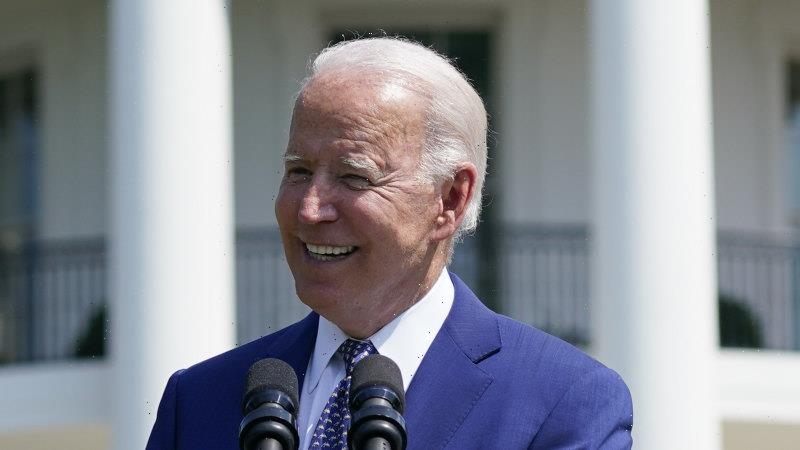Washington: US President Joe Biden offered temporary “safe haven” to Hong Kong residents in the United States, allowing what could be thousands of people to extend their stay in the country in response to Beijing’s crackdown on democracy in the Chinese territory.
Biden directed the Department of Homeland Security to implement a “deferral of removal” for up to 18 months for Hong Kong residents currently in the United States, citing “compelling foreign policy reasons.”
US President Joe Biden speaks during an event on clean cars and trucks, on the South Lawn of the White House.Credit:AP
“Over the last year, the PRC has continued its assault on Hong Kong’s autonomy, undermining its remaining democratic processes and institutions, imposing limits on academic freedom, and cracking down on freedom of the press,” Biden said in the memo, using the acronym for the People’s Republic of China.
He said offering safe haven for Hong Kong residents “furthers United States interests in the region. The United States will not waver in our support of people in Hong Kong.”
It is not clear exactly how many people the move would affect but the vast majority of Hong Kong residents currently in the United States are expected to be eligible, according to a senior administration official.
The White House said in a statement the move made clear the United States “will not stand idly by as the PRC breaks its promises to Hong Kong and to the international community.”
A red advertisement board is seen with backdrop of Hong Kong’s business district in Hong Kong on Monday.Credit:AP
Those eligible may also seek employment authorisation, Secretary of Homeland Security Alejandro Mayorkas said.
It is the latest in a series of actions Biden has taken to address what his administration says is the erosion of rule of law in the former British colony, which returned to Beijing’s control in 1997.
The US government in July applied more sanctions on Chinese officials in Hong Kong, and warned companies of risks of operating under the national security law, which China implemented last year to criminalise what it considers subversion, secessionism, terrorism or collusion with foreign forces.
Critics say the law facilitates a crackdown on pro-democracy activists and a free press in the territory, after Beijing agreed to allow considerable political autonomy for 50 years.
China retaliated against the US actions last month with its own sanctions on Americans, including former US commerce secretary Wilbur Ross.
China’s embassy in Washington did not respond immediately to a request for comment on the safe haven measure.
US lawmakers have sought legislation that would make it easier for people from Hong Kong to obtain US refugee status if they feared persecution after joining protests against China.
“The PRC has fundamentally altered the bedrock of Hong Kong’s institutions,” Secretary of State Antony Blinken said in a statement, noting that Chinese and Hong Kong authorities had arbitrarily delayed scheduled elections, disqualified lawmakers, undermined press freedom, and arrested more than 10,000 people.
Blinken added the United States was joining allies to offer the protection, in keeping with the Biden administration’s push to counter China in concert with likeminded partners.
Britain’s foreign minister, Dominic Raab, on Twitter welcomed the “big-hearted decision.”
Other countries, including Canada and Australia, have taken steps to facilitate Hong Kong immigration or permanent residency following Beijing’s crackdown.
In March, former Hong Kong legislator Ted Hui became the first Hong Kong politician to be granted a visa to resettle in Australia.
The Biden administration’s move falls under the Deferred Enforced Departure (DED) program, which does not offer a pathway to citizenship, but can be renewed indefinitely by a president.
Republican Senator Ben Sasse called the safe haven move a “solid step”, but said the US government needed to go further and offer full asylum to Hong Kongers.
Asked about prospects for permanent residency, State Department spokesman Ned Price said residents from Hong Kong could still be referred for consideration to the United States Refugee Admissions Program.
Samuel Chu, managing director of the Washington-based advocacy group Hong Kong Democracy Council, said data was limited but possibly tens of thousands of people could be eligible for the DED program, including thousands on student visas. He said the will for many to return to Hong Kong was strong, but that it might take more than one 18-month cycle.
“The overwhelming desire of Hong Kongers is to continue to fight for restoring their autonomy and freedoms,” Chu said.
Reuters
Most Viewed in World
From our partners
Source: Read Full Article







